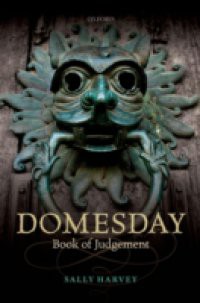Domesday: Book of Judgement provides a unique study of the extraordinary eleventh-century survey, the Domesday Book. Sally Harvey depicts the Domesday Book as the written evidence of a potentially insecure conquest successfully transforming itself, by a combination of administrative insight and military might, into a permanent establishment. William I used the Domesday Inquiry to contain the new establishment and consolidate their landholding revolution within a strict fiscal and tenurial framework, with checks and balances to prevent the king's followers from taking more powers and assets than they had been allocated. In this way, the survey served as a conciliatory gesture between the conquerors and the conquered, as William I came to realise that, faced with the threat to his rule from the Danes, he needed England's nativepopulations more than they needed him. Yes, the overlying theme of the Domesday Book is Judgment: every class of society had reason to regard the Survey's methodical and often pitiless proceedings as both a literal and a metaphorical day of account. In this volume, Sally Harvey considers the Anglo-Saxon background and the architects of the survey: the bishops, royal clerks, sheriffs, jurors, and landholders who contributed to Domesday's content and scope. She also discusses at length the core information in the Survey: coinage, revenues from landholding, fiscal concessions, and taxation, as well as some central tenurial issues. She draws the conclusion that the record, whilst consolidating William's position as king of the English, alsolaid the foundations for the twelfth-century treasury and exchequer. The volume newly argues that the Domesday survey also became an inquest into individual sheriffs and officials, thereby laying a foundation for reinterpreting the size of towns in England.

